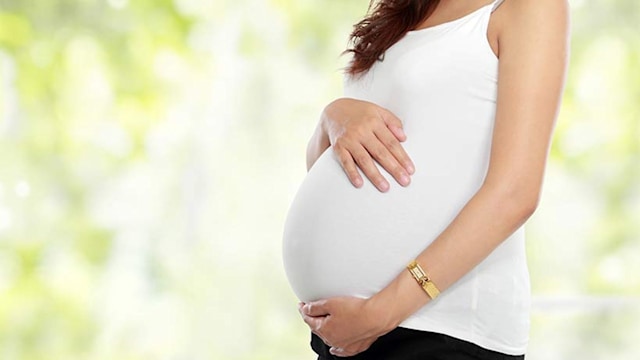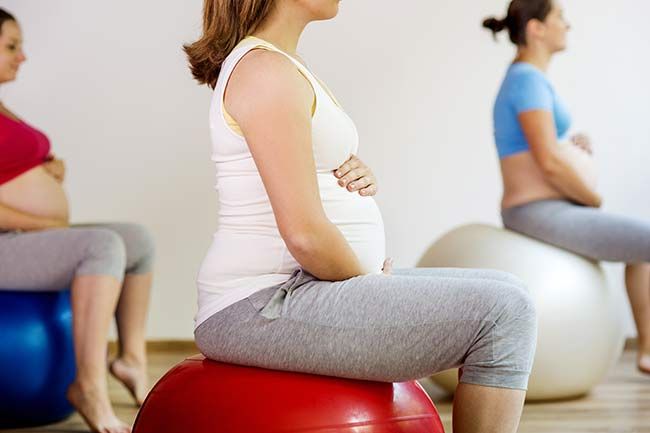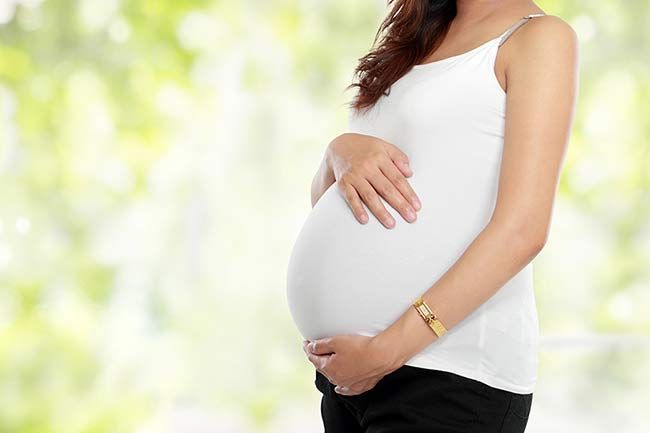There is a lot of confusion surrounding exercise during pregnancy, with conflicting advice on what is and isn't safe. And while many mums-to-be including Binky Felstead continue to follow a modified exercise routine, it is often unclear just what – and how much – they should be working out throughout their pregnancy. Personal trainer Monty Simmons, who is based at the five-star Rosewood hotel in Covent Garden, shares with us his expertise on what's safe and what's recommended during each stage of your pregnancy.
"The key is to keep everything at a moderate level, and of course to regularly check in with your health practitioner," Monty said. "If you’re not used to regular exercise, but you want to stay in shape and stay healthy, increase your exercise very gradually. If you're already active, keep at it but of course tone down the intensity as you get closer to your due date, and swap out any risky or extra-energetic routines for something safer and slower."
STORY: Top tips for a healthy pregnancy
Aim for moderate exercise:
"You should aim for around 30 minutes of exercise each day where you can, even if it's just 30 minutes of walking, but it’s so important that you don’t exhaust yourself. As a rule, you should be able to hold a conversation as you exercise while pregnant, so if you can't do that, you're probably being too strenuous."
Recommended exercises and sports to avoid:
"Minimise the potential for foetal damage by reducing the impact of the sport or exercise you're doing. I’d always recommend avoiding contact sports like judo or hockey, especially after the 16-week mark, and avoid sports where you might be more likely to take a tumble, such as road cycling, skiing or horse-riding. Also, you should avoid any exercises where you need to lie flat on your back for prolonged periods, as the weight of the baby bump will press on the main blood vessel transporting blood back to your heart, which can make you feel faint."
The benefits of exercising during pregnancy:
"Committing to a consistent workout regime will help you to feel like yourself, even when so much is changing," Monty advises. "It's the easiest way to ensure that you're staying healthy during this important time and not putting on too much weight, or too much strain on your organs and bones."
Evidence has shown that a regular fitness regime can help ward off gestational diabetes, which affects around 18% of pregnant women and can lead to difficulties with the pregnancy, the birth and health in the years following. In a 2012 study, expectant mothers undertaking a regular exercise routine were four times less likely to develop gestational diabetes.
STORY: The top five apps every new mum needs
Women who exercise while pregnant are also far less likely to experience complications with the birth or to deliver macrosomic babies (that is, babies who weigh over 9lbs at birth), but also the exercise is like endurance training for the marathon of labour. Strong stomach muscles and an increased stamina can help no end during childbirth.
The importance of nutrition during pregnancy:
It's incredibly important to properly nourish the body at all times, but during pregnancy this becomes even more essential, for the health and wellbeing for both mother and baby. "Staying hydrated is absolutely key!" Monty says. "Physiological changes to your heart rate, blood volume and blood pressure mean you’ll be more susceptible to low blood pressure, especially after the 16-week mark. At this point, you should avoid exercises that involve rapid level changes i.e. burpees, but maintaining your fluid levels is paramount, to avoid blood thickening and overheating. Keep well hydrated throughout your workouts and afterwards too, by drinking lots of water and other fluids."
Monty added: "Ensure you are giving yourself plenty of nutrients to replenish and feed your body. During pregnancy, you'll need to consume around 350-450 more calories each day than before you were pregnant, and this number only needs to increase if you’re exercising too."
To book a consultation or session with Monty Simmons visit www.montysimmons.co.uk.











